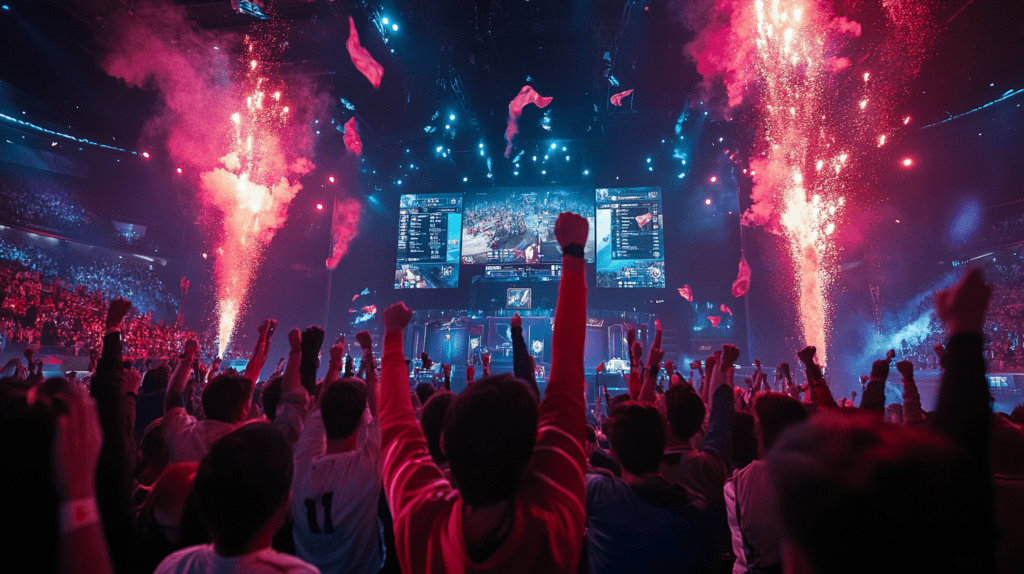The League of Legends Championship Series (LCS) has been a cornerstone of competitive League of Legends since its inception. As one of the major professional leagues featuring top-notch gameplay and strategies, the LCS showcases some of the most skilled players from North America. Our mission is to delve deep into what makes the LCS remarkable, exploring its history, key players, strategic innovations, and its impact on the global esports landscape.
The Evolution of the LCS
The LCS was established in 2013 as part of Riot Games’ effort to bring structured, professional-level competition to League of Legends. Initially, it served as a pivotal platform for North American teams to compete at an international level. Over the years, the LCS has evolved significantly, adapting to changes within the game and listening to community feedback to enhance its format and viewer experience.
Early Years and Format Changes
In its early stages, the LCS adopted a double round-robin format, which allowed each team to face one another twice during the season. This was crucial in highlighting consistent performers and fostering intense rivalries. The league’s structure has seen various transformations, including changes in the playoff format and the introduction of an academy league to nurture emerging talent.
Key Players and Teams in LCS History
The LCS has been home to numerous legendary players and teams that have left an indelible mark on the esports community. Icons like Bjergsen, Doublelift, and Sneaky have become synonymous with excellence in the LCS, demonstrating exceptional skill and game knowledge. These players have not only contributed to their team’s successes but have also played vital roles in elevating the region’s reputation on the global stage.
Team Success Stories
Teams such as Team SoloMid (TSM) and Cloud9 have consistently been at the forefront of the LCS, amassing a loyal fan base and securing numerous titles. These teams are known for their strategic depth, player development, and resilience under pressure. Their success in the LCS has positioned them as formidable opponents in international tournaments like the Mid-Season Invitational (MSI) and the World Championship.
Strategic Innovations Within the LCS
One of the hallmarks of the LCS has been its strategic diversity. North American teams have been credited with pioneering various strategies that have influenced global meta developments. From innovative pick-and-ban phases to unconventional team compositions, LCS teams continually push the boundaries of what is possible within the game.
Influence on Global Meta
The adaptability of LCS teams often results in the introduction of new strategies that others around the world closely watch. For instance, the utilization of unexpected jungle paths or the incorporation of niche champions into team comps can set trends that ripple throughout the competitive scene.
The Impact of the LCS on Esports
The LCS has played a significant role in the mainstream acceptance of esports, contributing to its growth both in audience size and cultural relevance. It has become a staple of North American esports, drawing large crowds to events and substantial viewership figures online. The league’s success has also attracted high-profile sponsors and partnerships, further legitimizing esports as a viable business.
Contributing to Cultural and Economic Growth
The presence of the LCS in North America has fostered a dynamic ecosystem of supporters, from fans to broadcasters, all contributing to the league’s widespread appeal. The economic impact includes job creation, technological advancements, and substantial media rights deals, illustrating the LCS’s influential role in shaping the modern esports industry.
Challenges and Future Prospects for LCS
Despite its successes, the LCS faces ongoing challenges, such as maintaining competitive parity with other regions and adapting to an ever-evolving esports landscape. To ensure future growth, the league must address these challenges head-on while continuing to innovate.
Addressing Competitive Parity
Efforts to improve the LCS’s international standing involve investments in player development and infrastructure. Collaborations with Academy leagues and strategic imports of international talent can help bridge the competitive gap and enhance the region’s global performance.
Fostering a New Era of LCS Viewership
As the LCS looks to the future, efforts are being concentrated on enhancing viewer engagement through innovative broadcast techniques and interactive fan experiences. By harnessing the power of digital platforms, the LCS aims to bring fans closer to the action and create a more immersive experience.
Expanding Accessibility and Inclusivity
The LCS is committed to making esports accessible to wider audiences, including efforts to include more diverse voices within the community. This initiative not only broadens the fan base but ensures that the LCS remains vibrant and representative of its global audience.
Conclusion
The LCS remains a pivotal entity within the world of competitive League of Legends. By continually evolving and addressing the challenges of a dynamic esports landscape, the LCS ensures that it remains at the forefront of innovation and competitive excellence. Through strategic advancements, player development, and community engagement, we believe the LCS is well-positioned to continue its legacy as an influential force in global esports.
For more information on the LCS and its contributions to the League of Legends community, consider visiting Riot Games Official or following LCS Official Channels.
Frequently Asked Questions about LCS
What is the LCS in League of Legends?
How has the LCS format changed over the years?
Who are some of the most legendary players in LCS history?
What strategies have LCS teams introduced to the global meta?
How has the LCS contributed to the growth of esports?
What challenges does the LCS face in maintaining competitive parity with other regions?
Visit LOLNOW.GG to get all the latest news and updates about LOL and League of Legends!




